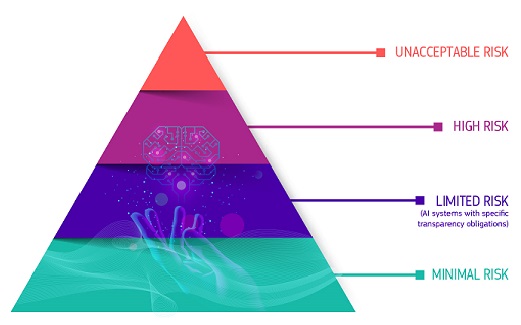Introducing the EAVI Weekly Digest. It’s a brief summary of some of the things that have happened or have been written during the week regarding media literacy and media in general in Europe and elsewhere. Posted every Friday.
1. Copyright in the EU
A lot of discussion on the leaked impact statement on Europe’s new copyright reforms this week. Among the controversies, provisions for ancillary copyright have upset many as it appears to be a backflip by Commission on earlier promises to exclude them. Ancillary copyright, sometimes referred to as a link tax, is being forwarded by publishing giants. Get the lowdown on what Ancillary Copyright could mean (Hint: It’s not good!) for the EU in the short, funny video below.
2. EDRi (European Digital Rights) has published a helpful (re: alarming) summary of all the current risks to our digital rights here. Namely, all of them; privacy, security, surveillance, safeguards against law enforcement data sharing, censorship, net neutrality (still under threat by telcos) and more.
3. An article on Vox discusses the revelation that Vogue Brazil digitally removed the limbs from actors posing as paralympians in place of actual paralympians in order to promote the Paralympics. A snippet from the article –
“…the move seems misguided on a deeper level than its potential offensiveness to particular athletes. After all, if interest in the Paralympic Games is low because of the perception that the games are less exciting, less glamorous, and less worth watching than the games’ able-bodied counterpart that just wrapped up, it would seem that Vogue Brazil’s decision to replace the athletes with actors doesn’t necessarily show solidarity but actually reinforces that thinking.”
4. Facebook recently acquired Whatsapp, who have altered their privacy terms. You should see a screen like the one below that explains the changes with a button that says ‘Accept.’
Essentially the changes mean that your messages will be accessible by Facebook – in order to deliver you more relevant ads. If you don’t want this to happen for privacy reasons, tap on ‘read more’ and scroll down and uncheck accept.
They were a bit tricky with this ‘opt out option’ one as it appears as if you HAVE TO accept. If you’ve already accepted the changes then you have 30 days to alter your settings and revoke Facebook’s access.

5. A study from The Pew Research Centre has been released regarding ‘Americans Views on Mobile Etiquette’ from a survey of 3,217 respondents. Among their finding that 31% of people never turn their cell phone off – presenting new social challenges for the first generation of people to be constantly connected – the study presents what percentages of people generally think it is ok to use their cell phone in different social situations; at a party, restaurant, in a meeting etc. Read the report here.

6. UK thinktank, Demos has produced a study showing a rise of anti-Islamic language on Tiwtter, particularly in the aftermath of terror attacks. July saw 215,246 (289 per hour) Islamophobic tweets. You can find the study here.
Introducing the EAVI Weekly Digest. It’s a brief summary of some of the things that have happened or have been written during the week regarding media literacy and media in general in Europe and elsewhere. Posted every Friday.
1. Copyright in the EU
A lot of discussion on the leaked impact statement on Europe’s new copyright reforms this week. Among the controversies, provisions for ancillary copyright have upset many as it appears to be a backflip by Commission on earlier promises to exclude them. Ancillary copyright, sometimes referred to as a link tax, is being forwarded by publishing giants. Get the lowdown on what Ancillary Copyright could mean (Hint: It’s not good!) for the EU in the short, funny video below.
2. EDRi (European Digital Rights) has published a helpful (re: alarming) summary of all the current risks to our digital rights here. Namely, all of them; privacy, security, surveillance, safeguards against law enforcement data sharing, censorship, net neutrality (still under threat by telcos) and more.
3. An article on Vox discusses the revelation that Vogue Brazil digitally removed the limbs from actors posing as paralympians in place of actual paralympians in order to promote the Paralympics. A snippet from the article –
“…the move seems misguided on a deeper level than its potential offensiveness to particular athletes. After all, if interest in the Paralympic Games is low because of the perception that the games are less exciting, less glamorous, and less worth watching than the games’ able-bodied counterpart that just wrapped up, it would seem that Vogue Brazil’s decision to replace the athletes with actors doesn’t necessarily show solidarity but actually reinforces that thinking.”
4. Facebook recently acquired Whatsapp, who have altered their privacy terms. You should see a screen like the one below that explains the changes with a button that says ‘Accept.’
Essentially the changes mean that your messages will be accessible by Facebook – in order to deliver you more relevant ads. If you don’t want this to happen for privacy reasons, tap on ‘read more’ and scroll down and uncheck accept.
They were a bit tricky with this ‘opt out option’ one as it appears as if you HAVE TO accept. If you’ve already accepted the changes then you have 30 days to alter your settings and revoke Facebook’s access.

5. A study from The Pew Research Centre has been released regarding ‘Americans Views on Mobile Etiquette’ from a survey of 3,217 respondents. Among their finding that 31% of people never turn their cell phone off – presenting new social challenges for the first generation of people to be constantly connected – the study presents what percentages of people generally think it is ok to use their cell phone in different social situations; at a party, restaurant, in a meeting etc. Read the report here.

6. UK thinktank, Demos has produced a study showing a rise of anti-Islamic language on Tiwtter, particularly in the aftermath of terror attacks. July saw 215,246 (289 per hour) Islamophobic tweets. You can find the study here.
Introducing the EAVI Weekly Digest. It’s a brief summary of some of the things that have happened or have been written during the week regarding media literacy and media in general in Europe and elsewhere. Posted every Friday.
1. Copyright in the EU
A lot of discussion on the leaked impact statement on Europe’s new copyright reforms this week. Among the controversies, provisions for ancillary copyright have upset many as it appears to be a backflip by Commission on earlier promises to exclude them. Ancillary copyright, sometimes referred to as a link tax, is being forwarded by publishing giants. Get the lowdown on what Ancillary Copyright could mean (Hint: It’s not good!) for the EU in the short, funny video below.
2. EDRi (European Digital Rights) has published a helpful (re: alarming) summary of all the current risks to our digital rights here. Namely, all of them; privacy, security, surveillance, safeguards against law enforcement data sharing, censorship, net neutrality (still under threat by telcos) and more.
3. An article on Vox discusses the revelation that Vogue Brazil digitally removed the limbs from actors posing as paralympians in place of actual paralympians in order to promote the Paralympics. A snippet from the article –
“…the move seems misguided on a deeper level than its potential offensiveness to particular athletes. After all, if interest in the Paralympic Games is low because of the perception that the games are less exciting, less glamorous, and less worth watching than the games’ able-bodied counterpart that just wrapped up, it would seem that Vogue Brazil’s decision to replace the athletes with actors doesn’t necessarily show solidarity but actually reinforces that thinking.”
4. Facebook recently acquired Whatsapp, who have altered their privacy terms. You should see a screen like the one below that explains the changes with a button that says ‘Accept.’
Essentially the changes mean that your messages will be accessible by Facebook – in order to deliver you more relevant ads. If you don’t want this to happen for privacy reasons, tap on ‘read more’ and scroll down and uncheck accept.
They were a bit tricky with this ‘opt out option’ one as it appears as if you HAVE TO accept. If you’ve already accepted the changes then you have 30 days to alter your settings and revoke Facebook’s access.

5. A study from The Pew Research Centre has been released regarding ‘Americans Views on Mobile Etiquette’ from a survey of 3,217 respondents. Among their finding that 31% of people never turn their cell phone off – presenting new social challenges for the first generation of people to be constantly connected – the study presents what percentages of people generally think it is ok to use their cell phone in different social situations; at a party, restaurant, in a meeting etc. Read the report here.

6. UK thinktank, Demos has produced a study showing a rise of anti-Islamic language on Tiwtter, particularly in the aftermath of terror attacks. July saw 215,246 (289 per hour) Islamophobic tweets. You can find the study here.






















































































































































